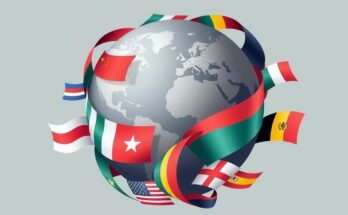The COP29 Host Country Agreement between Azerbaijan and the UNFCCC lacks essential protections for participants’ rights, creating significant concerns ahead of the conference. With vague terms regarding legal immunity and respect for local laws, activists fear reprisals under Azerbaijan’s oppressive regime. Civil society continues to advocate for transparency, urging the UNFCCC to publish agreements and hold host nations accountable for human rights obligations.
In a disheartening yet expected turn of events, the agreement facilitating Azerbaijan’s hosting of COP29, a significant international climate conference, raises serious concerns regarding the protection of participants’ rights. The United Nations Framework Convention on Climate Change (UNFCCC) and the Azerbaijani government formalized this agreement in August 2024, though it remains hidden from public scrutiny. The provisions within this document cast shadows over the freedoms expected at such global discussions. While the agreement promises conference attendees immunity from legal proceedings for their spoken or written words and actions, it simultaneously underscores the necessity of abiding by Azerbaijani laws and avoiding interference in its internal matters. This raises alarming questions: what qualifies as “interference,” and how can attendees be assured that they won’t face repercussions within a restrictive regime known for stifling free speech? In a country notorious for its harsh restrictions on expression and assembly, the mere act of voicing dissent or promoting alternative views could lead to dire consequences outside the conference’s controlled environment. The backdrop is stark: Azerbaijan has systematically curtailed freedoms, targeting activists and independent organizations that dare challenge the status quo. Previous climate conferences have urged transparency and respect for human rights, calling on host nations to guarantee these critical protections. Civil society groups, including Human Rights Watch and Amnesty International, have long championed the need for host country agreements to be accessible, empowering participants to feel secure in exercising their rights while attending such crucial dialogues. As COP29 approaches, there is still an unsettling cloud of uncertainty enveloping the safety and rights of attendees—activists, journalists, and human rights defenders—who deserve clear assurances from both the UNFCCC and the Azerbaijani authorities. The prevailing secrecy around these agreements is troubling; such crucial agreements should not be shrouded in ambiguity, leaving civil society to play the role of transparency advocates. The UNFCCC is now called to action, not just to publish historic and contemporary agreements but to demand Azerbaijani compliance with its human rights commitments. The urgency for a rights-respecting climate conference has never been greater; the world watches as crucial discussions unfold against a backdrop where fundamental freedoms hang by a thread.
The COP29 Host Country Agreement has emerged as a contentious issue, with serious implications for the rights of those attending the conference. The agreement between Azerbaijan and the UNFCCC, signed without public disclosure, sets forth conditions that may imperil participants’ freedoms. Given Azerbaijan’s notorious track record of repressing dissent and free expression, activists, journalists, and civil society members are rightfully concerned about their ability to participate safely in discussions critical to climate action and human rights advocacy. Historical advocacy from organizations highlighting the need for transparency in such agreements further amplifies the urgency of the current situation.
The COP29 agreement, while framed as a host partnership, reveals significant flaws regarding the safeguarding of attendees’ rights. Amidst Azerbaijan’s oppressive climate for free speech, the ambiguity regarding legal protections presents a daunting challenge for activists participating in global climate discussions. A clarion call now echoes for the UNFCCC to embrace transparency and demand that human rights be upheld, ensuring a safe and accessible forum for all voices during this pivotal moment in addressing climate change.
Original Source: www.hrw.org


